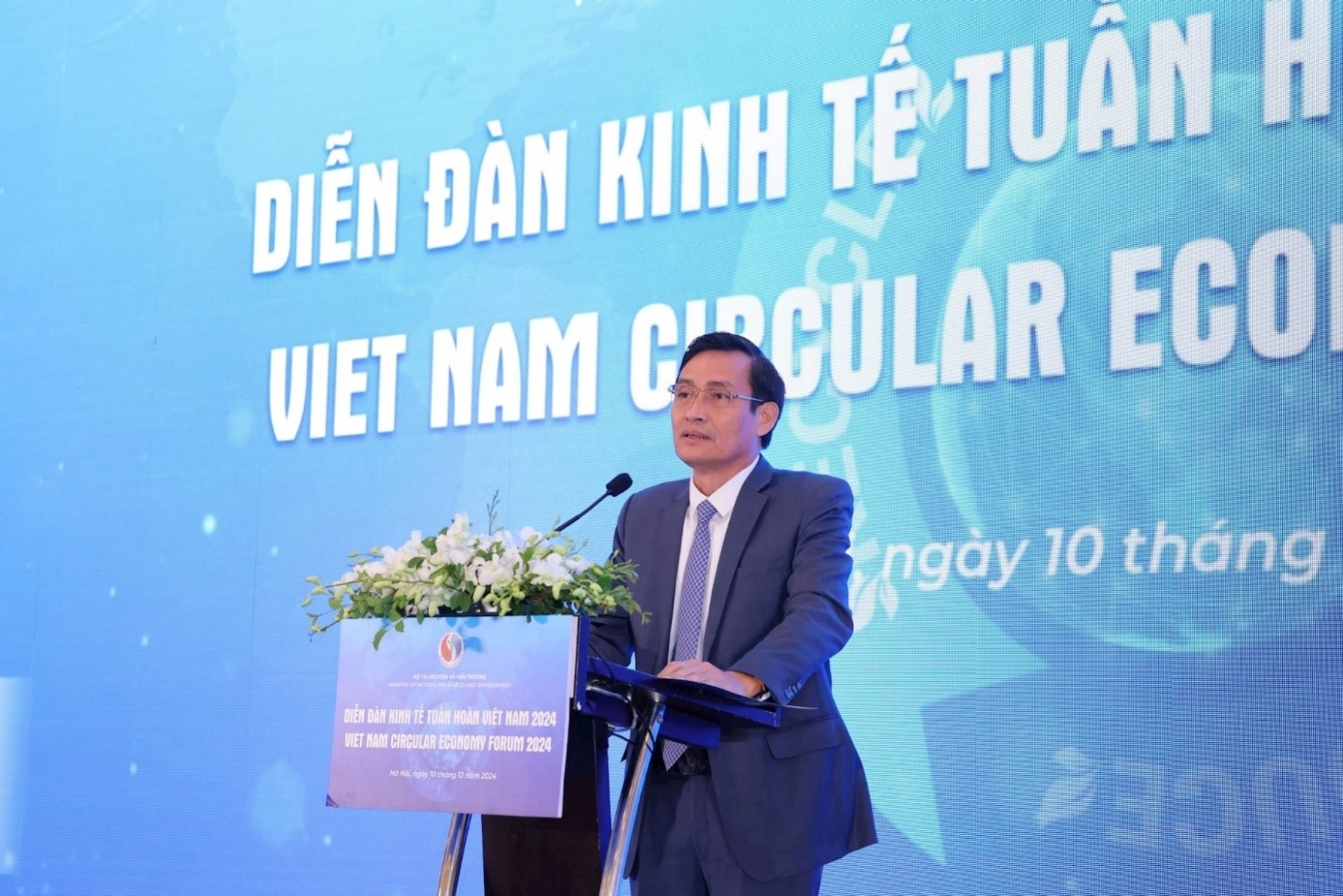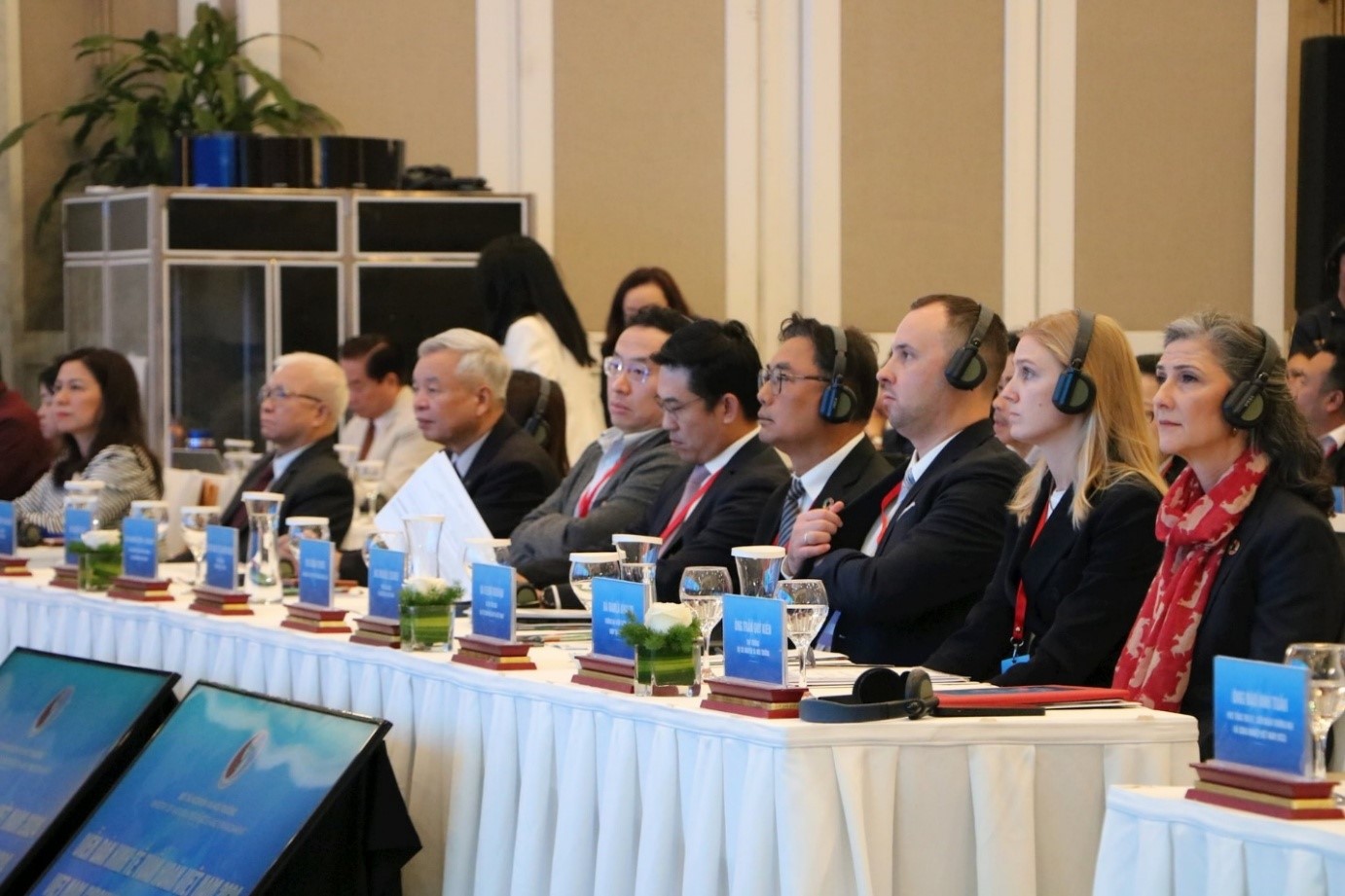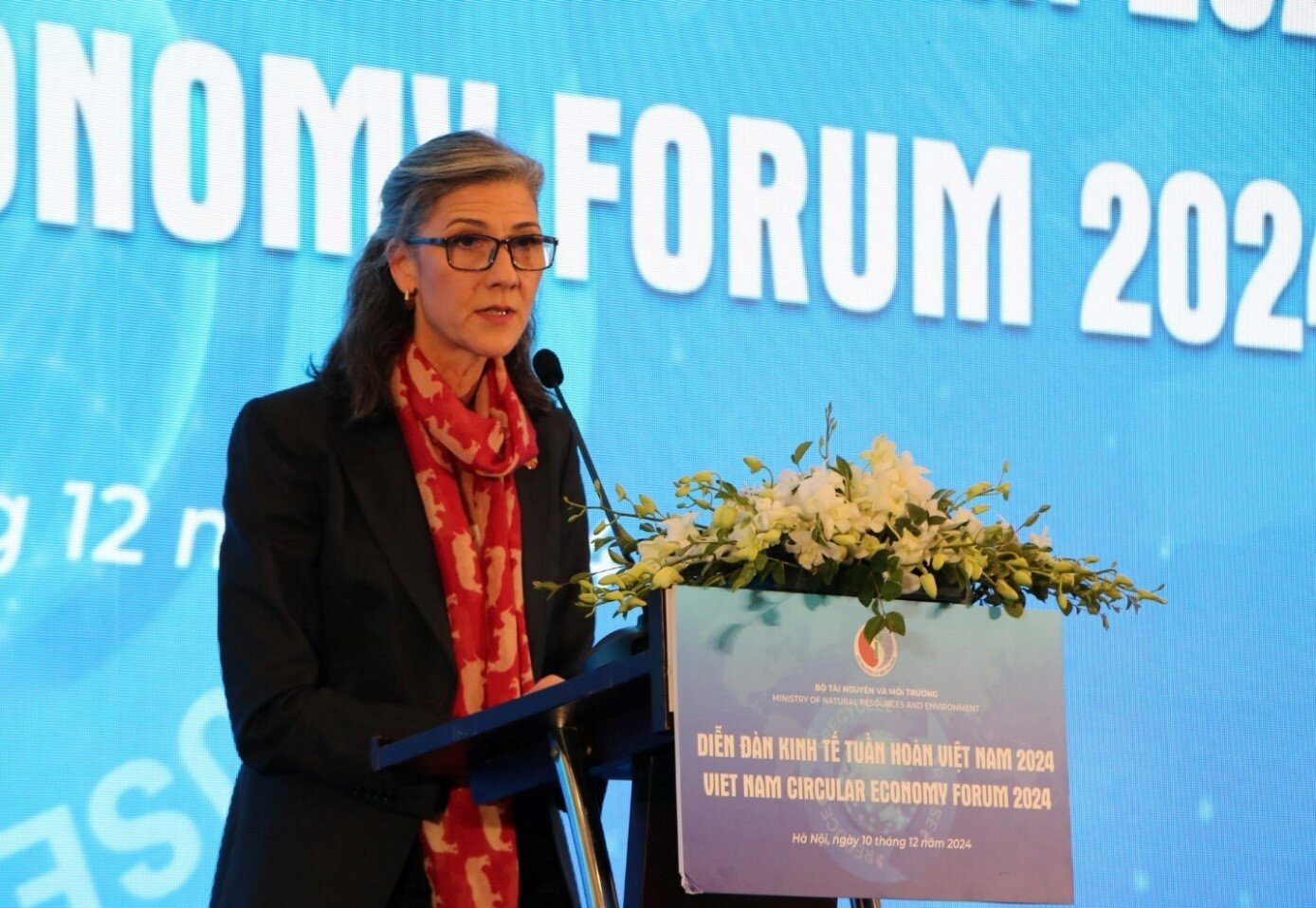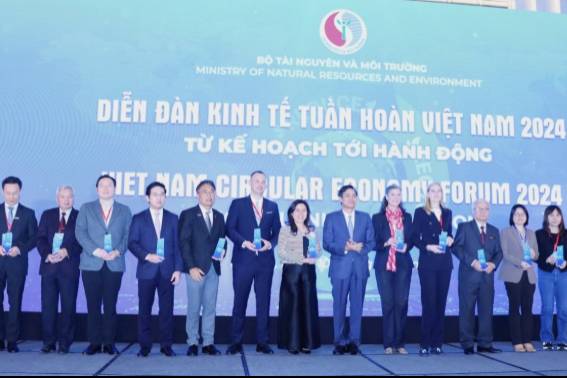“Realizing the National Action Plan for implementing the circular economy (CE) will drive innovation, improve labor productivity, and promote good practices, creating a green culture and lifestyle…”.
This significant point was emphasized by Deputy Minister of Natural Resources and Environment Tran Quy Kien at the opening session of the "Viet Nam Circular Economy Forum 2024: From Plan to Action" on December 10 in Ha Noi.
With the theme "Promoting the Circular Economy in Viet Nam - From Plan to Action", the forum includes a plenary session and three specialized workshops. It reflects the overall picture of orientations, policies, current status, and innovative solutions to promote CE development in Viet Nam, highlighting the role of the private sector.
 Deputy Minister of Natural Resources and Environment Tran Quy Kien delivered the opening speech at the Forum.
Deputy Minister of Natural Resources and Environment Tran Quy Kien delivered the opening speech at the Forum.Following the success of the 2022 and 2023 forums, the third forum in 2024 is chaired by the Ministry of Natural Resources and Environment, with participation from leaders of the Ministry, representatives of development partners, ambassadors, large enterprises, NGOs, universities, research institutes, and leading experts in CE.
In recent years, CE development has been identified as a priority direction by the Vietnamese government. The 13th National Congress of the Communist Party of Viet Nam set the goal of building an environmentally friendly CE. CE is seen as an appropriate approach to waste management, efficient resource use, environmental protection, disaster prevention, and climate change response.
 Delegates attending the Forum
Delegates attending the ForumTo realize this policy, the Ministry of Natural Resources and Environment has coordinated with other ministries and agencies to draft the National Action Plan for CE, which has been submitted to the Prime Minister for approval, with contributions from various stakeholders and international support.
At the opening session, Deputy Minister Tran Quy Kien emphasized that implementing CE is a cross-sectoral task and a societal responsibility involving all levels of government, ministries, localities, organizations, and individuals. Realizing the National Action Plan for CE will drive innovation, improve labor productivity, promote good practices, create a green culture and lifestyle, and foster green jobs and new value chains in CE.
To accelerate the transition to CE, Ramla Khalidi, Resident Representative of the United Nations Development Programme (UNDP), suggested four main priorities for Viet Nam: integrating ecological and circular design into policies, prioritizing key sectors like agriculture, electronics, textiles, and construction, ensuring effective institutions and governance structures, and making the transition to CE a societal effort centered on people and social equity.
 Ms. Ramla Khalidi - Resident Representative, United Nations Development Programme (UNDP) speaking at the Forum
Ms. Ramla Khalidi - Resident Representative, United Nations Development Programme (UNDP) speaking at the ForumThe forum also included discussions on the transition to CE in Viet Nam and ways to promote CE, aiming to make Viet Nam a pioneer in ASEAN in establishing a comprehensive institutional and legal framework for CE. The dialogue session addressed opportunities, challenges, and resources needed to promote CE in the coming time.
In the dialogue session on "Promoting the Circular Economy in Viet Nam - From Planning to Action," representatives from government agencies, international organizations, and businesses discussed the opportunities, challenges, and resources needed to promote the circular economy in the coming time.
 Deputy Minister of Natural Resources and Environment Tran Quy Kien presented souvenir cups to representatives participating in the Viet Nam Circular Economy Forum 2024
Deputy Minister of Natural Resources and Environment Tran Quy Kien presented souvenir cups to representatives participating in the Viet Nam Circular Economy Forum 2024In the afternoon, the forum continued with sessions on circular design (alternative materials), sustainable production and consumption (reuse, refill, digital tools, markets), and turning waste into resources (sorting and recycling).